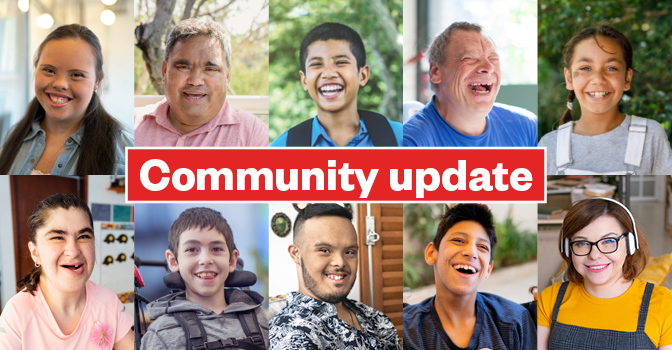The NDIS has released a new version of the Pricing Arrangements and Price Limits as well as a new NDIS Support Catalogue.
New information on pricing is usually released every year. It contains important details about changes in pricing and how NDIS pricing works for people on the NDIS and providers.
The Leap in! Crew has created a summary of the key changes to keep you up to date with all the latest details.
Summary of changes:
- Costs for disability support workers have increased
- Requirements and price limits for high intensity supports have changed
- Core supports providers can now claim for return travel
- The timeframe for short notice cancellations has increased
- New locations will be classified as remote for pricing purposes
- TTP loading will reduce to 3% from 1 July 2022
Costs for disability support workers have increased.
A 9% increase on price limits for disability support workers will take effect from 1 July 2022, reflecting the financial and logistical pressure on providers.
NDIS Plans will be increased automatically to cover the cost of the increase including the Fair Work Commission’s recent wage decision.
The COVID-19 booster payment has also been extended to 31 August 2022. This allows providers to claim $100 per worker for a booster vaccination in certain registration groups.
[Image description: A girl using a wheelchair and her carer are outside in the sunshine. The carer is smiling at the girl as she crouches beside her. ]
Updates to therapy supports.
The price limits for therapy supports are not changing but will be reviewed at a later date.
Therapy supports are disability-related health supports that provide care, excluding nursing care, to respond to disability-related health needs where that care is not the usual responsibility of the health system.
A specific line item has been added for “other therapists” – another professional who the therapy supports provider considers appropriate to deliver the support in line with the NDIS requirements for the Therapeutic Supports Registration Group.
Clarification of high intensity supports.
The NDIS has more clearly defined high intensity supports. A support is considered high Istensity if:
- A person needs frequent assistance (at least one instance per shift) to manage challenging behaviours that require intensive positive behaviour support and/or
- Requires assistance from a disability support worker who has one or more of the high intensity support skills found in the NDIS Practice Standards.
A single price limit has been introduced for High Intensity supports set at the previous Level 2 price. The price varies by time of day and day of week..
Core supports providers can now claim for travel.
Providers of core supports can now claim for travel to provide services and may also claim for return travel in some situations.
A service agreement specifying which travel costs can be claimed is required. This brings Core supports provider travel costs in line with cost claimable by Capacity Building providers.
Short notice cancellations increase to seven days.
Short notice cancellations have now increased to seven clear days. Previously short notice cancellations were applied for cancellations two or five business days prior to the service booking, depending on the duration and service cost.
If a provider is not notified within this period or the person does not show up for their appointment, the provider can claim 100% of the fee from the participant’s NDIS Plan.
A cancellation is a “short notice cancellation” if:
- The person does not show up for a scheduled support within a reasonable timeframe or is not present at the agreed place and within a reasonable timeframe when the provider is travelling to deliver the support.
- Has given less than seven clear days of notice.
A short notice cancellation can only be applied if the participant has agreed in advance in a service agreement with the provider and the provider cannot find other billable work for that time.
Other important information.
- Price limits for therapy supports will be maintained at 2021 levels.
- The NDIS has defined “other professionals” in relation to early Childhood Intervention supports as someone who is not specifically listed but is considered an appropriate professional with regard to the NDIS Quality and Safeguard Commission requirement for Early Intervention Supports.
- There are now defined line items and qualification requirements for allied health professionals for therapy supports and early childhood therapy supports.
- A new NDIS Bereavement Addendum lists support items that plan managers and SIL providers can claim after a participant has died.
- Transitional pricing arrangements for group based core supports have been extended until 30 June 2023.
- The NDIS has clarified the different nursing classifications based on the award and increased price limits for nursing supports.
- There are no changes to price limits for Level 2 or 3 Support Coordination or plan management. Level 1 support coordination will be indexed in line with the Disability Support Worker cost model.
- Some locations not currently classified as remote or very remote will now be classified as remote if it’s not possible to travel to a major city or city of more than 50,000 people without crossing a remote area. For example, Geraldton in Western Australia is now treated as remote.
Do you have any questions? Leap in! can help.
If you are unsure how these changes may affect you or your NDIS Plan, get in touch with the Leap in! Crew. Call 1300 05 78 78, email crew@leapin.com.au or chat with us online.


